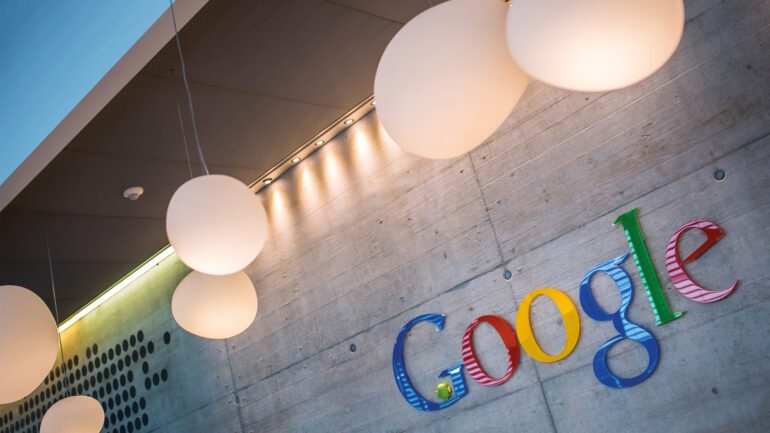TL;DR:
- The European Commission and Google have formed a voluntary partnership to establish AI regulations.
- The collaboration aims to create guidelines before official legislation, such as the EU’s proposed AI Act.
- The EU and the United States are also working together to set minimum standards for AI.
- Concerns for the EU include copyright, disinformation, transparency, and governance in relation to AI.
- Generative AI, like OpenAI’s ChatGPT, has gained popularity but raises fears about societal impact.
- AI-generated images, speech cloners, and future video generators pose additional challenges.
- Unregulated generative AI can threaten content creators, privacy and spread misinformation.
- The collaboration seeks to establish guardrails and responsible practices for AI development.
- The business world awaits the outcome as shaping AI regulations will shape future industries.
Main AI News:
In a remarkable display of forward-thinking, the world’s governments are acknowledging the potential disruptive power of generative AI and taking proactive measures. The European Commission (EC) industry chief, Thierry Breton, revealed on Wednesday that Alphabet, Google’s parent company, will engage in a voluntary partnership aimed at establishing ground rules for artificial intelligence. This development, as reported by Reuters, comes after a meeting between Breton and Google CEO Sundar Pichai in Brussels. The alliance will incorporate contributions from European companies and those from other regions. Notably, the European Union (EU) has a track record of implementing stringent technology regulations, and this collaboration allows Google to offer input while preempting any future complications.
The objective of this compact is to formulate guidelines in advance of official legislation, such as the EU’s proposed AI Act, which is anticipated to require substantial time for development and implementation. Breton emphasized the importance of proactive measures, stating, “Sundar and I agreed that we cannot afford to wait until AI regulation actually becomes applicable, and to work together with all AI developers to already develop an AI pact on a voluntary basis ahead of the legal deadline.” He further urged EU nations and lawmakers to reach a consensus on specific details by the end of the year.
Similarly, EU tech chief Margrethe Vestager announced on Tuesday that the federation would collaborate with the United States to establish minimum standards for AI. Vestager hopes that EU governments and lawmakers will collectively draft a unified set of regulations by the end of 2023. She pointed out, “That would still leave one if not two years then to come into effect, which means that we need something to bridge that period of time.” The EU’s concerns encompass critical areas such as copyright, disinformation, transparency, and governance.
While generative AI has gained widespread popularity, exemplified by the rapid rise of OpenAI’s ChatGPT, there are legitimate concerns surrounding its potential to disrupt society. Despite not having an official mobile app until recently, ChatGPT has experienced unprecedented growth, making it the fastest-growing application to date. However, fears persist about its ability to upend societal norms. Additionally, image generators have evolved to the point where AI-generated “photos” are becoming indistinguishable from real ones. Furthermore, speech cloners can convincingly mimic the voices of renowned artists and public figures. It is only a matter of time before video generators advance, raising further concerns regarding the proliferation of deepfakes.
While generative AI undeniably holds immense potential for creativity and productivity, it also poses threats to the livelihoods of countless content creators while introducing new security and privacy risks and facilitating the spread of misinformation and disinformation. Unregulated corporations have a tendency to prioritize profit at any cost, and when coupled with the power of generative AI in the hands of malicious actors, the potential for global havoc becomes immeasurable. Vestager aptly captured the urgency surrounding this issue, stating, “There is a shared sense of urgency. In order to make the most of this technology, guardrails are needed. Can we discuss what we can expect companies to do as a minimum before legislation kicks in?”
In an era where technological advancements outpace regulatory frameworks, collaborations like the one between Google and the European Commission represent a crucial step forward. By establishing guidelines and minimum standards while encouraging responsible practices among AI developers, they aim to strike a delicate balance between innovation and safeguarding societal well-being. As discussions progress, the business world eagerly awaits the outcome, recognizing that shaping AI regulations today will shape the future of countless industries tomorrow.
Conlcusion:
The partnership between the European Commission and Google to establish AI regulations signifies a significant development in the market. This collaboration acknowledges the disruptive potential of generative AI and demonstrates a proactive approach toward shaping its impact. By setting guidelines and minimum standards, the market can expect increased accountability, responsible practices, and a focus on addressing concerns such as copyright, disinformation, transparency, and governance. This development fosters an environment that balances innovation with the protection of societal well-being. As businesses navigate the evolving AI landscape, they must stay informed about emerging regulations and adapt their strategies to align with the evolving market dynamics.

